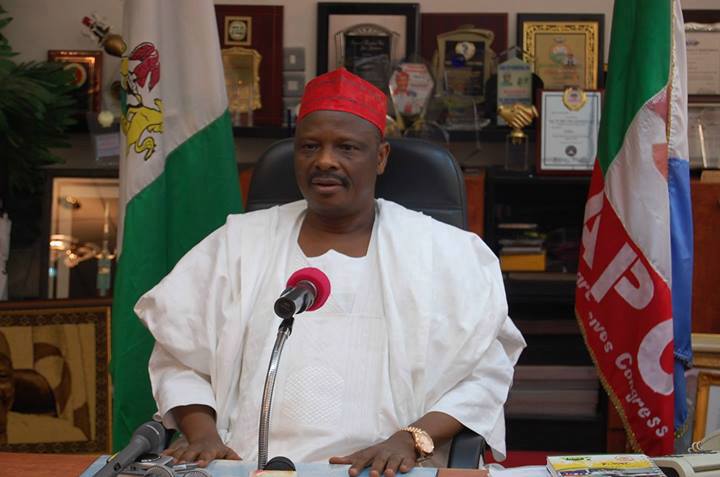BY LAOLU OSINBAJO
The role of the youth in any society is crucial to its development, peace and progress. Historically, young people everywhere have been the driving force behind industrial boom, economic stability and progress.
However, in recent times, the number of employed youth globally has been steadily decreasing, with an exception being sub-saharan Africa, which has recorded a 1.1% increase. Sub-saharan Africa, being of course, all the nations in Africa, except the seven at its top, which include Morocco, Algeria, Libya, Tunisia, Egypt, Sudan and western Sahara claimed by Morocco. Also, sub-saharan Africa is the only region in recent times to record 0% change in its youth labour force participation, while other regions have experienced a steady decline. These trends have been closely linked to increasing trends in educational enrollment in the region. Based on these statistics our continent is at an advantage. However, the fact remains that 18 of the 20 poorest countries in the world are in Africa.
What is responsible for this? We can attribute it to decades of political instability, war and famine that have traversed the length and breath of our continent. Nevertheless, a more pertinent question ought to be asked: who is responsible? Jesus Christ once said that defilement starts from within, I concur and submit that every one of us must learn to accept responsibility for the situation we have found ourselves in today. Thankfully most of you reading this article have the potential to take us out of where we are to where we ought to be!
Advertisement
China was once a relatively poor nation, with a huge population that were mainly illiterate and tremendous reserves of untapped resources. But they improved their fortunes through reforms in their education sector and an intentional organisation of rural populations who were brought to cities to turn raw materials into finished goods.
Thus was the birth of the entrepreneurial boom in China, which has played a central role in China being one of the most credit worthy nations in the world today. If you look at the devices or products in your homes, they are likely to have the words “Made in China” written on them. Isn’t it ironic, that the world we live in today is dominated by products made in a once poor country?
What could this mean for African nations? Is it possible for us to replicate the results of the Chinese success story? I certainly believe we can. We are a continent blessed with an abundant supply of natural resources, yet in some of our nations, we lack the capital needed to exploit these resources. Foreign commentators have sentenced us to a future of aid and assistance from the West. I say; pave way for the Young African Entrepreneur, who shall be tasked with the duty of articulating our primary motivation for starting our businesses, then learning the compromises associated with our goals and choosing to consistently pursue it.
Advertisement
If we can maintain this structure, our developmental decisions would support our goal rather than threaten it in the long run. What is our goal? I believe it is creating an enabling environment where innovation and economic development can thrive.
Entrepreneurship by definition is the capacity and willingness to develop, organize and manage a business venture, along with any risks involved, in order to make a profit, whilst providing a solution to a social problem.
In Africa, we most certainly have the capacity, as the statistics on youth labour participation shows, but our young people must be willing to develop unique and innovative ways to solve our own society’s problems, in power, health care, education and transportation. In order for us to attain our goal, we must come together to identify our common problems and create platforms where sustainable solutions can be proffered and executed.
A discussion on the realities of entrepreneurship in Africa would be incomplete, if we do not highlight our success stories. Africa as a continent has proven to be an enterprising and promising economy, with great young entrepreneurs, like Tanzania’s Patrick Ngwoi, who started off by selling Chinese-made phones at age 19 and later went on to start his company, Helvetic Solar Contractors, with operations in Tanzania and other East African countries, where they have installed over 6,000 small rooftop solar systems and contributed to reducing the power deficit in those areas.
Advertisement
At this stage, we must begin to consider what we must do differently. In my humble opinion, we must have an intentional focus on developing our human resources and paying our labourers what is due to them. We must create conducive work environments, implement and maintain best practices in all our endeavours. We must learn to view both our successes and failures as value-neutral, so long as the risk was taken wisely. Our young people must also take the necessary steps to actualise the vision for a thriving African economy, by learning to think outside the box responsibly, as everything that is good is not profitable and all that is profitable is not good. Our governments must facilitate this vision and create policies that ensure that our mission critical work is not outsourced to other countries, but rather create necessary means of training our own people to fill these critical roles.
Let me sum up by saying this; I am privileged to have the unique opportunity to closely watch and follow topmost leadership in my country’s government. Friends, from my observation, it requires discipline, consistency, resilience and, most importantly, the grace of God to build any nation. I pray our generation will possess a greater dose of these essential ingredients so that, God willing, we would be able to steer this great continent we share and love, to a place we can all be proud to call home.
Inactivity is the greatest enemy of entrepreneurship. To this end, let us all commit to continuous self development to nurture positive creativity and to remain determined to manage the challenges and risks we would face on the way. I look forward to a more prosperous Africa very soon!
Osinbajo writes from Abuja
Advertisement
Views expressed by contributors are strictly personal and not of TheCable.
2 comments







???..thanks for sharing this..I will also like to add that this entrepreneurship thing that everyone is talking about is not as easy as it seems..Research has shown that over 60% entrepreneurs go into it to alleviate poverty and make ends meet. Out of this 60%, over 7% drop out due to lack of capital to start and over 15% drop out due to lack of encouragement either financially, morally, spiritually and a lot more. I will just like to add that there should be forums like this organised for both working entrepreneurs and aspiring entrepreneurs so as to enlighten them a bit more about the entrepreneurship businesses as a major way to alleviate poverty.. Thanks
Very nice write up. But it isnt different from the same old message of youth activeness, entrepreneural thinking and waking from slumber of which no one has hit at the fulcrum.
You see, sincerely yours, the only problem Africa as a continent has is that Africa is a consuming continent anf not a producing continent. We need to produce what we consume; and consume what we produce. Once we can do that, we shall get it right!
Drawing back into the 60s and 70s; Nigeria as a country consumed what she produced; and produced what she consumed such that our production was very high and we were king in exportation; those times the Naira had value than the dollar and the economy was excellent; farmers could build houses; not just huts or mud houses; but storey-building.
But today, all is history. Why? We do not produce again but now consume heavily which we fund with extreme importation. We now import fuel; we now import food; we import cars; we import wears and all.
Until we correct that and go back to normal we cant be normal.
Merry Christmas!
Ibukun Oyekan is a medical student at the prestigious Obafemi Awolowo University; and currently the Students’ Union President, Obafemi Awolowo University, Nigeria.